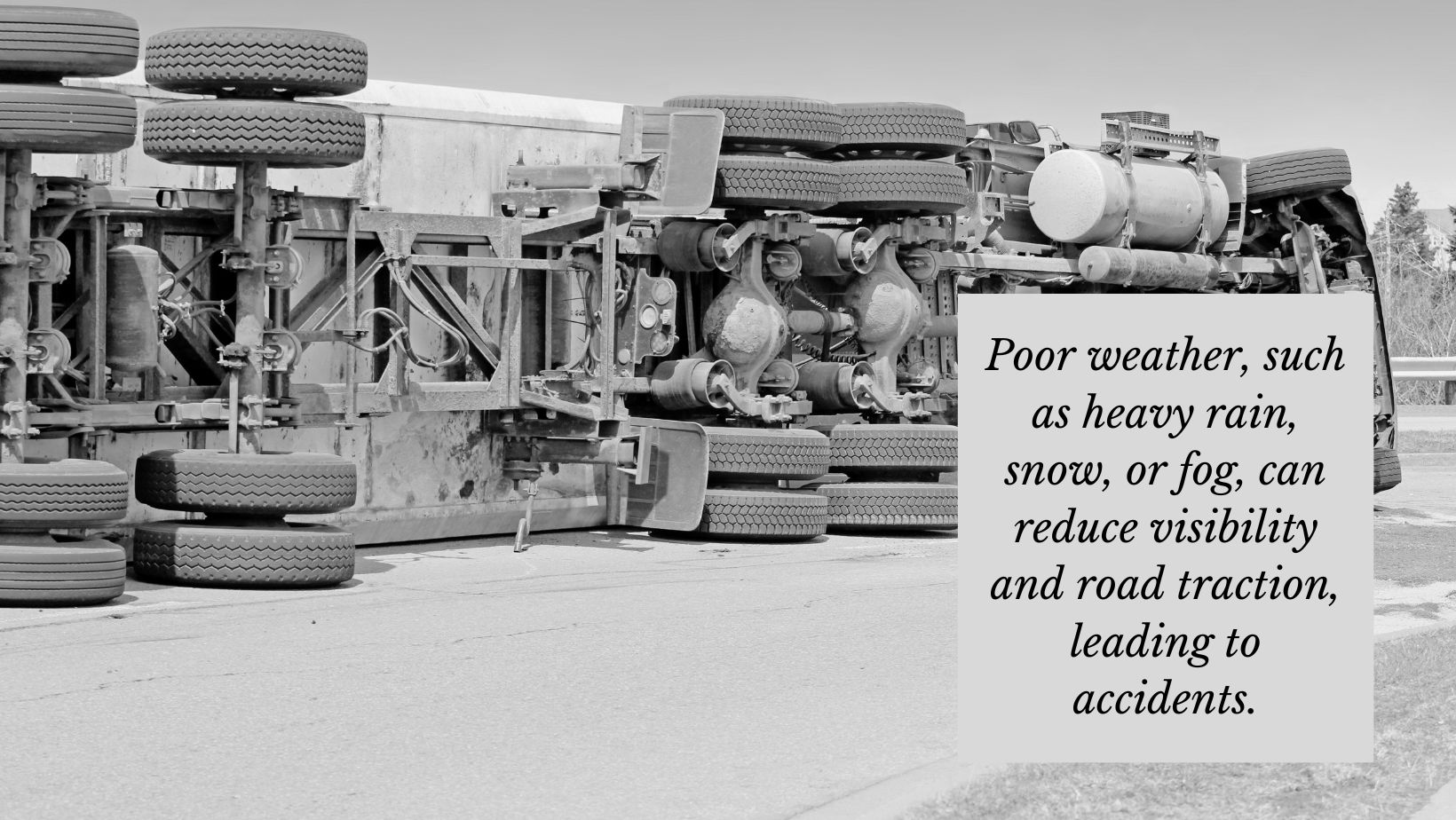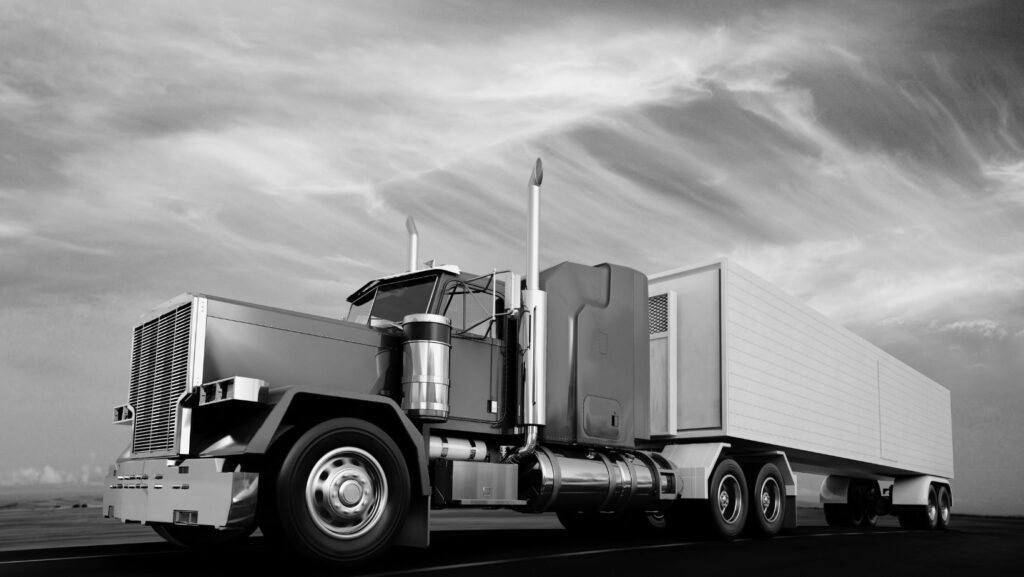Semi-trucks are massive, and it takes a skilled driver to operate them safely. Unfortunately, drivers of 18-wheelers are not always knowledgeable about the best safety practices, and accidents occur. Because of the substantial mass difference between these vehicles and others on the road, these accidents are often severe and result in significant bodily injury or even death. Understanding how, when, and why 18-wheeler accidents occur is crucial for avoiding them, and seeking legal help when needed.
In Case of a Truck Accident
If you find yourself in an accident involving an 18-wheeler, take the following steps:
- Prioritize Safety: Move to a safe area if possible. Turn on hazard lights and set up emergency cones or flares if you have them.
- Call for Help: Contact emergency services immediately. Reporting the accident is crucial, even if it seems minor.
- Document the Scene: Take photos of the accident scene, including vehicle positions, damage, and any relevant road signs or conditions. Also write down the license plate number and color of the cab. If you are injured and can’t do this, check that an officer is taking photos and writing down information.
- Exchange Information: Exchange contact and insurance information with the truck driver and any other involved parties.
- Seek Medical Attention: Even if you feel fine, it’s important to get checked by a medical professional. Some injuries might not be immediately apparent.
- Report to Your Insurance: Inform your insurance company about the accident as soon as possible.
- Seek Legal Advice: Consider consulting a legal expert, especially if injuries or significant damage occur. They can guide you through the complexities of truck accident claims. To get a feel for potential compensation for this kind of accident, check out our article.
Understanding 18-Wheeler Accidents
Understanding the patterns in semi-truck accidents can help you identify circumstances where it makes sense to increase caution when one is nearby.
The When and Why
Certain factors increase an 18-wheeler’s likelihood of being in an accident:
- Time of Day: According to the National Highway Safety Association, 71% of large truck accidents occurred during daytime hours between 6 a.m. and 6 p.m. Seventy-eight percent of fatal traffic crashes involving large trucks occurred on weekdays.
- Weather Conditions: Poor weather, such as heavy rain, snow, or fog, can reduce visibility and road traction, leading to accidents. These conditions are present in 30-35% of all accidents.
- High Traffic Areas: Urban areas and congested highways pose a higher risk due to increased vehicle interaction and the potential for sudden stops and account for about 26% of all deaths in 18-wheeler accidents.
- Rural Areas: According to the FMCSA, “[a]pproximately 54% of all fatal crashes involving large trucks occurred in rural areas, 26% occurred on Interstate highways, and 12% fell into both categories by occurring on rural Interstate highways.”
Given these trends, it’s important to be especially cautious around 18-wheelers when driving during the day, at night, on the highway, in poor weather, or in a rural area.
The How
The size and weight of 18-wheelers mean they require more time and distance to stop. A lack of awareness or miscalculation by truck drivers or other road users can lead to collisions. Factors such as driver fatigue and distracted driving further exacerbate these risks. Semis have larger blind spots than other vehicles, meaning truck drivers who aren’t cautious enough may inadvertently collide with a vehicle that’s otherwise driving correctly.
Beyond driver behavior, issues like unsecured or overloaded cargo can disrupt a truck’s balance and maneuverability, increasing the likelihood of an accident. Additionally, inadequate training or lack of proper training for drivers, poor maintenance, failure to inspect the vehicle, mechanical failures, and poor road conditions are all critical factors that can contribute to these dangerous incidents.

Types of Truck Accidents
While many kinds of 18-wheeler accidents exist, a few types are most common.
Rollovers: These incidents often arise from excessive speed or incorrect loading of the truck’s cargo. When the vehicle’s center of gravity is disrupted, it can lead to part or the entire truck rolling over.
Jackknife Incidents: This term describes a situation where the front of the 18-wheeler folds inwards, resembling a folding pocket knife. Causes include mechanical failures, improper braking techniques, or hazardous road conditions like ice.
Underride Collisions: In these severe accidents, a passenger vehicle strikes an 18-wheeler and slides underneath the trailer. This collision can result in the top of the passenger vehicle being sheared off, often with fatal consequences. These collisions frequently occur at night and are usually due to the passenger vehicle’s driver not noticing the tractor-trailer turning or decelerating.
Accidents Due to Unsecured Loads: These occur when the truck’s cargo is not properly balanced or secured, or when the load shifts during transit, or due to wear and tear on restraining mechanisms. Such incidents can lead to substantial damage and injuries.
Tire Blowout Accidents: These happen when a tire is damaged or worn and suddenly loses all air or bursts, making the 18-wheeler difficult to control. Accidents occur when other vehicles are struck by debris from tires or when the tractor-trailer loses control and strikes another vehicle directly.
Safety Tips for Drivers
To avoid an 18-wheeler accident:
- Maintain Safe Distance: Always keep a safe distance from an 18-wheeler. This gives you more time to react if the truck makes sudden moves.
- Be Aware of Blind Spots: Avoid lingering in a truck’s blind spots. If you can’t see the truck’s mirrors, the driver can’t see you.
- Overtake with Caution: When overtaking, ensure you have enough space to pass quickly and safely. Avoid cutting in front of a truck, as they cannot stop abruptly.
- Watch for Turning Trucks: On average, large trucks need more space to turn—around 55 feet. Give them room, especially at intersections.
- Stay Alert: Pay attention to the road and avoid distractions. Being alert helps you react quickly to unexpected situations.
Accidents with 18-Wheelers are Scary. We’re Here to Help.
The road can be unpredictable, and 18-wheeler accidents carry significant risks due to their size and weight. Consequently, accidents with an 18-wheeler can be life-altering. If you or a loved one has been in such an accident, you should consider contacting Kane Personal Injury. We have a long history of investigating accidents, successfully determining causes and liability, and building the best possible cases for our clients to help them maximize their compensation to get back to a normal life. To learn more about how we can help, contact us today for a free, no-obligation consultation.
